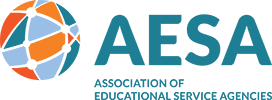K-12 education groups applaud expansion to enhance greater internet connectivity for public schools and libraries nationwide
Alexandria, Va. – June 26, 2024 – Federal Communications Commission (FCC) Chairwoman Jessica Rosenworcel today announced the FCC will vote to expand its E-Rate program for Wi-Fi hotspots and wireless internet access services at its July meeting.
Today’s announcement is part of Rosenworcel’s broader Learn Without Limits initiative, a three-pronged proposal as it also calls for allocating E-Rate dollars to access Wi-Fi on buses and create a three-year, $200 million pilot program for cybersecurity. It comes at a time when an increasing number of students, educators and administrators rely heavily on remote educational tools while online space becomes part of their classrooms.
The E-Rate program is one of the five largest streams of federal funding in our nation’s schools. Part of the FCC’s universal service program, E-Rate serves as a support mechanism that reaches back to 1934 and focuses on ensuring rural consumers have affordable phone service.
The leadership of Association of Educational Service Agencies (AESA), is joined by the AASA, The School Superintendents Association, American Association of School Business Officials International (ASBO), National Association for Pupil Transportation (NAPT) and the National Rural Education Association (NREA) in applauding today’s vote that will continue to narrow the digital divide.
“AASA commends Chairwoman Rosenworcel and the FCC for their ongoing leadership in closing the homework gap for our nation’s students,” said David R. Schuler, executive director, AASA. “We support today’s announcement of a vote to expand the E-Rate eligible services list to include Wi-Fi hotspots and services. On the heels of the sunsetting of the Emergency Connectivity Fund, which served nearly 20 million students through 11,500 schools, 1,070 libraries and 130 consortia, this move will allow our nation’s school and libraries to better ensure our 24-hour learners have 24-7 access to broadband.”
“Expanding the E-Rate eligible services list to include WI-Fi hot spots and services is common sense policy that will allow our schools to meaningfully address ongoing post-pandemic needs to connect students at home for homework, learning, research, and more,” said James Rowan, chief executive officer, executive director, ASBO International. “We thank the chairwoman for her continued support for and leadership on E-Rate and connectivity for students.”
“Today’s announcement from the FCC will allow a significant part of the Emergency Connectivity Fund’s homework gap support to continue through the E-Rate program,” said Joan Wade, executive director, AESA. “We thank the chairwoman for announcing the coming vote in July to expand the E-Rate eligible services list to include Wi-Fi hotspots and services and urge all five FCC Commissioners to vote yes in July.”
“NAPT is proud to support today’s announcement as part of the chairwoman’s broader Learn Without Limits proposal, which includes wi-fi on buses,” said Molly McGee-Hewitt, executive director, NAPT. “By announcing the forthcoming vote to expand the E-Rate eligible services list to include Wi-Fi hotspots and services, the E-Rate program can help bridge the homework gap that challenges the ability of students to connect at home for learning and homework assignments.”
“The homework gap—where up to 1/3 of our nation’s students report facing at least one academic challenge related to lack of access to technology at home—has been especially persistent in our nation’s rural communities, where reliable, equitable access to affordable broadband is harder to come by,” said Allen Pratt, executive director, NREA. “Today’s announcement from the FCC means that the critical work of the Emergency Connectivity Fund to connect millions of students at home can carry on, helping to better prevent our rural students and schools from being left behind in out-of-school-hours learning. NREA supports the proposed changes to E-Rate and applauds the FCC Chairwoman and Commissioners for their work on this issue.”
Supported by AESA since its inception, E-Rate was added in the 1996 reauthorization of the Telecommunications Act and designed to provide libraries and schools with access to affordable broadband, internet access services and internal WI-Fi use. E-Rate is nearly solely responsible for the nearly universal access that our nation’s students have in schools today.
Rosenworcel has spent her career advocating for and in support of the E-Rate program, including the 2014 modernization of the program which focused on ensuring students had access to broadband.
